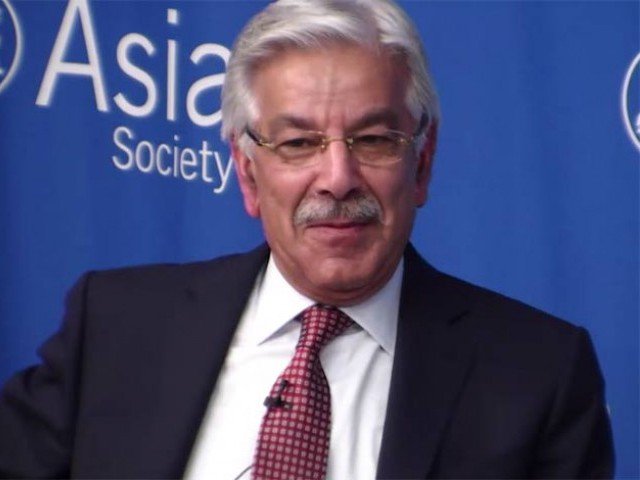| Getting your Trinity Audio player ready... |
ISLAMABAD: Pakistan Muslim League-Nawaz senior leader Khawaja Asif challenged his disqualification verdict in the Supreme Court today.
Asif has stated in his review petition that he unintentionally failed to disclose his foreign work permit in his nomination papers — the basis for the Islamabad High Court (IHC) decision against him.
He has pleaded the court to declare the IHC judgment null and void, and fix the matter for hearing at the apex court.
Asif had made the announcement to challenge the disqualification decision against him while addressing a party rally in Sialkot’s Allama Iqbal Chowk on Tuesday. He further said that he hopes for justice from the apex court.
“If I am not able to contest the elections then someone else will contest it in my place,” he remarked, adding that no power can stop him from serving as a political worker. “I have served people since last 28 years.”
Only one month is left before the government’s tenure ends, he said. Asif hoped that the people again vote in favour of PML-N in 2018 as well. “At least 92,000 votes were cast in favour of me during last general elections,” shared the leader who returned to his constituency first time after his disqualification.
“I have supported Nawaz Sharif every time, I am extremely proud of him,” he added.
On April 27, Asif was disqualified by the IHC under Article 62 (1)(f) of the Constitution for failing to disclose his employment in a UAE company and the monthly salary he was receiving.
The court announced its verdict on a petition stating that Asif did not mention his foreign employment in his nomination papers.
A three-member bench headed by Justice Athar Minallah had announced the verdict and ruled that Asif is not ‘honest’ and ‘truthful’ as per the Constitution.
The three bench members unanimously ruled that Asif was not qualified to contest the 2013 general election from NA-110 as he did not fulfill the conditions described under Article 62(1)(f) of the Constitution, read with Section 99(1)(f) of the Representation of People Act 1976. – resource credit.









